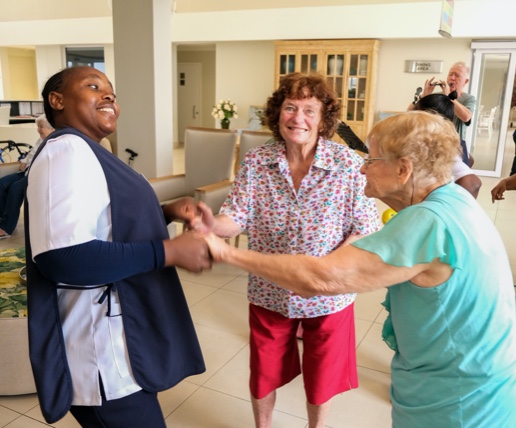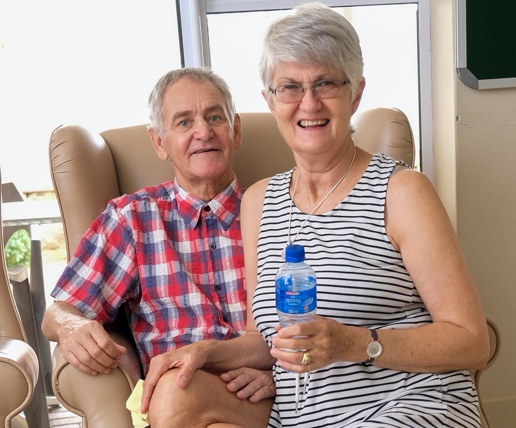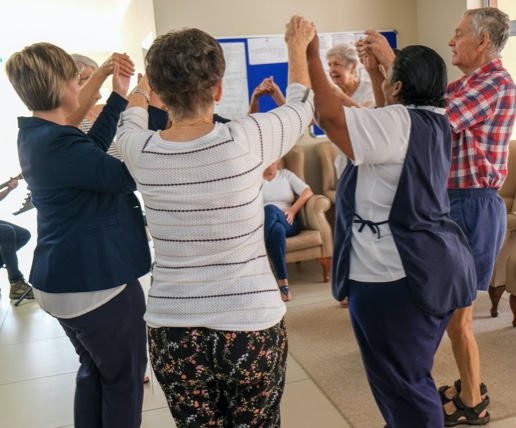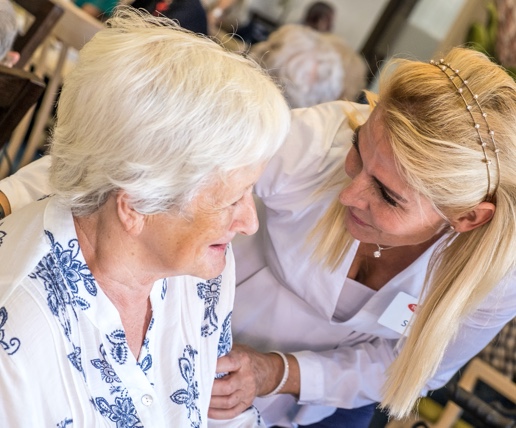
Age isn’t just a number, it’s a mindset. The way we think about our lives after retirement has a significant impact on our experience as we grow older. Studies show that having a positive outlook can increase levels of satisfaction and lifespan by up to eight years! Take a look at some of the most widely believed misconceptions about ageing and why they’re untrue.



Myth 1: Your health is determined by family history.
Truth: Many people believe that their health will follow a similar pattern to their parents’ and grandparents’. And while genetics may play a small role, your overall health and longevity are far more likely to be influenced by factors like eating a balanced diet, doing regular exercise, getting enough sleep and other lifestyle choices such as not smoking and limiting alcohol consumption.
Truth: Many people believe that their health will follow a similar pattern to their parents’ and grandparents’. And while genetics may play a small role, your overall health and longevity are far more likely to be influenced by factors like eating a balanced diet, doing regular exercise, getting enough sleep and other lifestyle choices such as not smoking and limiting alcohol consumption.
Myth #2: Old people are weak and frail.
Truth: Contrary to popular belief, ageing doesn’t necessarily mean losing physical strength and mobility. In fact, with regular exercise and staying active, you can stay flexible, build muscle and even increase bone density. Walking, yoga, gardening, doing household chores and generally staying in motion will not only keep you fit and able for years to come, but it can also help decrease blood pressure and ward off the symptoms of anxiety and depression.
Truth: Contrary to popular belief, ageing doesn’t necessarily mean losing physical strength and mobility. In fact, with regular exercise and staying active, you can stay flexible, build muscle and even increase bone density. Walking, yoga, gardening, doing household chores and generally staying in motion will not only keep you fit and able for years to come, but it can also help decrease blood pressure and ward off the symptoms of anxiety and depression.
Myth #3: Seniors are destined to become senile.
Truth: While it’s true that forgetfulness and slower problem-solving skills are a fairly common symptom of ageing, dementia is by no means inevitable. There are even ways to help reduce some age-related mental decline. These include staying physically active, eating a nutritious diet, and continuing to learn new skills and develop new interests well into your senior years.
Truth: While it’s true that forgetfulness and slower problem-solving skills are a fairly common symptom of ageing, dementia is by no means inevitable. There are even ways to help reduce some age-related mental decline. These include staying physically active, eating a nutritious diet, and continuing to learn new skills and develop new interests well into your senior years.
Myth #4: Older people struggle to learn new skills.
Truth: Ongoing research shows that while learning patterns may change and speed of learning may decline, the basic ability to learn remains the same even as we age. What’s more, the branching of the brain’s nerve cells increases, and connections between the disparate brain areas become stronger. This makes it easier to detect relationships between various sources of information and understand the overall implications of specific circumstances.
Truth: Ongoing research shows that while learning patterns may change and speed of learning may decline, the basic ability to learn remains the same even as we age. What’s more, the branching of the brain’s nerve cells increases, and connections between the disparate brain areas become stronger. This makes it easier to detect relationships between various sources of information and understand the overall implications of specific circumstances.
Myth #5: Seniors are lonely and isolated.
Truth: Humans are social creatures and need meaningful relationships to thrive. This doesn’t change as we grow older. In fact, a senior’s mental and emotional wellbeing is highly dependent on maintaining contact with family and friends. Those that become isolated may become depressed and even physically ill. As we age, we may lose touch with friends and family (often due to distance or death). However, taking part in social clubs or joining a retirement community is a great way to stay connected and grow a new circle of lifelong friendships with like-minded peers.
Truth: Humans are social creatures and need meaningful relationships to thrive. This doesn’t change as we grow older. In fact, a senior’s mental and emotional wellbeing is highly dependent on maintaining contact with family and friends. Those that become isolated may become depressed and even physically ill. As we age, we may lose touch with friends and family (often due to distance or death). However, taking part in social clubs or joining a retirement community is a great way to stay connected and grow a new circle of lifelong friendships with like-minded peers.
Myth #6: Older people are technophobes.
Truth: Despite the common belief that the older generation is confused and intimidated by new technology, many seniors have adopted recent technological advances such as the internet. Smart devices, video calls and messaging are a great way for seniors to stay in touch with distant family more regularly. While many older individuals also use smartwatches and various other fitness devices to monitor their exercise and track their vital statistics.
Truth: Despite the common belief that the older generation is confused and intimidated by new technology, many seniors have adopted recent technological advances such as the internet. Smart devices, video calls and messaging are a great way for seniors to stay in touch with distant family more regularly. While many older individuals also use smartwatches and various other fitness devices to monitor their exercise and track their vital statistics.
Myth #7: Seniors aren’t interested in sex.
Truth: Having a healthy, rewarding sex life is possible at any age. While the frequency or ability to perform sexually may decline a bit with age, studies show that the majority of men and women between the ages of 50 and 80 are still interested in sex and intimacy. In fact, older people often have more self-confidence and a better understanding of their preferences, making sex a far more rewarding experience.
Truth: Having a healthy, rewarding sex life is possible at any age. While the frequency or ability to perform sexually may decline a bit with age, studies show that the majority of men and women between the ages of 50 and 80 are still interested in sex and intimacy. In fact, older people often have more self-confidence and a better understanding of their preferences, making sex a far more rewarding experience.
Myth #8: Older people aren’t good at making important decisions.
Truth: Many people believe that with age seniors lose the ability to think clearly, and also lose touch with current events that should influence their decisions. But cognitive skills are based on a lifetime of experience and learning. Important decisions regarding healthcare, finances, living arrangements and so on should always involve that person as long as they are still mentally sound.
Truth: Many people believe that with age seniors lose the ability to think clearly, and also lose touch with current events that should influence their decisions. But cognitive skills are based on a lifetime of experience and learning. Important decisions regarding healthcare, finances, living arrangements and so on should always involve that person as long as they are still mentally sound.
At Totalcare, we offer seven sophisticated retirement villages designed to ensure residents live a long, healthy and rewarding lifestyle. Luxurious accommodation, nutritious meals, landscaped gardens, stimulating social activities and 24/7 medical care form part of our exceptional all-inclusive offering.
For more information, click here.
